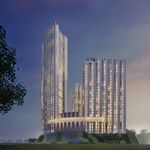Rainforest
Senior Member
Marginally? At peak?
Go back to the foundational Transit City documents.
This was never about high speed RT.
If it is not about high speed, then it should not be labeled as "rapid", right? Or the label becomes misleading.
We can debate the definitions of course, but for most of people, "rapid" transit is something that runs faster than local most of the time, not just during the peak hours when everything is jammed.
Btw that does not mean local transit is a bad idea, nor that LRT is a bad idea. Just needs to be described according to its actual function.
Even the Bloor-Danforth night bus is faster than the subway!
And yet, we do not call the night buses "rapid night transit", despite them being faster than the regular buses, LRTs, or subways.




